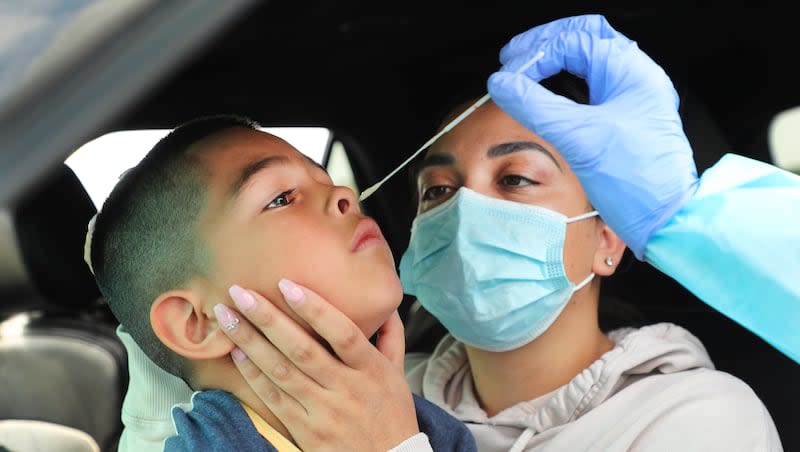Will the U.S. ever really study lessons from the pandemic?

Four years have now passed since COVID-19 was declared a global health emergency, followed by the NBA shutting down because a Utah Jazz player became infected and much of the economy closing shop.
March of 2020 is a moment in history that produced vivid memories for those who experienced it. Lessons ought to abound.
And yet, with the passage of time it’s becoming increasingly unlikely the United States will convene any sort of credible and non-political commission to provide a dry-eyed assessment of how the nation did.
First, the pandemic became hopelessly politicized nearly from the start, making it impossible to draw conclusions that aren’t seen as helping the narrative of one side or the other.
Second, an authoritative review of how the nation reacted would have to include separate commissions for each state, given the widely differing approaches to combating spread.
This is a shame. The greatest value to such a study would be to prepare the nation for its next health emergency.
But, even without a commission, some lessons are becoming clear.
One is that lockdowns and school closures didn’t accomplish much. A New York Times report published this week said, “Today, there is broad acknowledgment among many public health and education experts that extended school closures did not significantly stop the spread of Covid, while the academic harms for children have been large and long-lasting.”
Those academic harms may take years to correct, if they are corrected at all. Test scores show students fell behind at a rate that mirrored the length of time their schools were closed, and that online learning failed. The Times quoted research from Stanford and Harvard that found students who moved to online learning for most of the 2020-21 school year fell more than a half grade behind, on average, in the subject of math. More recent testing has shown these students have not caught up.
In the meantime, there is little evidence to suggest that school closures stemmed the transmission of COVID.
The pandemic offers lessons in other areas as well, from stimulus checks and business loans that were poorly managed and led to widespread fraud, to mask mandates, the political tug-of-war between state lawmakers and health departments, the canceling of non-essential surgeries and a rise in employees working remotely from home that continues today.
As research from the Becket Fund found, many states used the pandemic as an excuse to discriminate against churches and religious practices. Some “imposed unjust burdens on religion not felt by secular entities,” the report said.
Supply chains failed and shortages emerged for items as seemingly random as toilet paper.
Last year, 34 medical, policy, biodefense and advocacy professionals formed a privately funded group to examine the nation’s response to the pandemic, an effort that resulted in a 352-page book.
The book’s authors reached some uncomfortable conclusions, noting that, despite possessing vast wealth and technological know-how, “No country’s performance is more disappointing than that of the United States.” It blamed health officials and politicians, among others, for not anticipating the lack of public trust and strategizing on ways to counter it.
“Facing a dangerous pandemic, they adopted the broadest, most ambitious and intrusive set of government controls on social behavior in the history of the United States,” the authors said.
It may be easy, four years later, to say the nation overreacted, or perhaps underreacted in many ways. It’s harder to remember how little was known about the virus at first, or to acknowledge how quickly a vaccine was produced.
Also, it can be easy now to dismiss the pandemic as minor. It was not. As Deseret News reporter Lois Collins reported this week, official death counts are inaccurate, and the pandemic may have caused 30 million deaths worldwide.
All of this screams of the need for dry-eyed study that is free from politics, conducted with an eye toward helping future generations. Perhaps this will happen gradually through academic studies. If so, we hope the lessons can guide the nation’s leaders the next time a pandemic breaks out.

